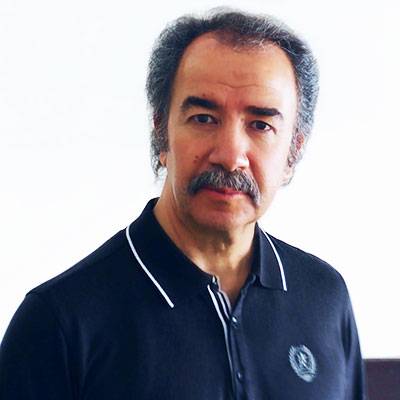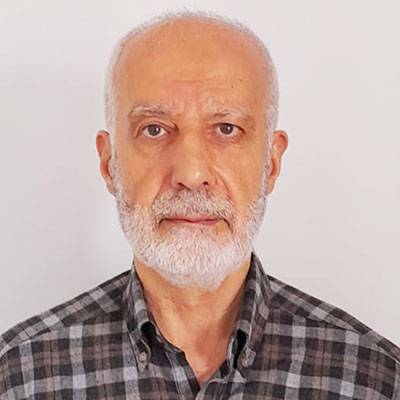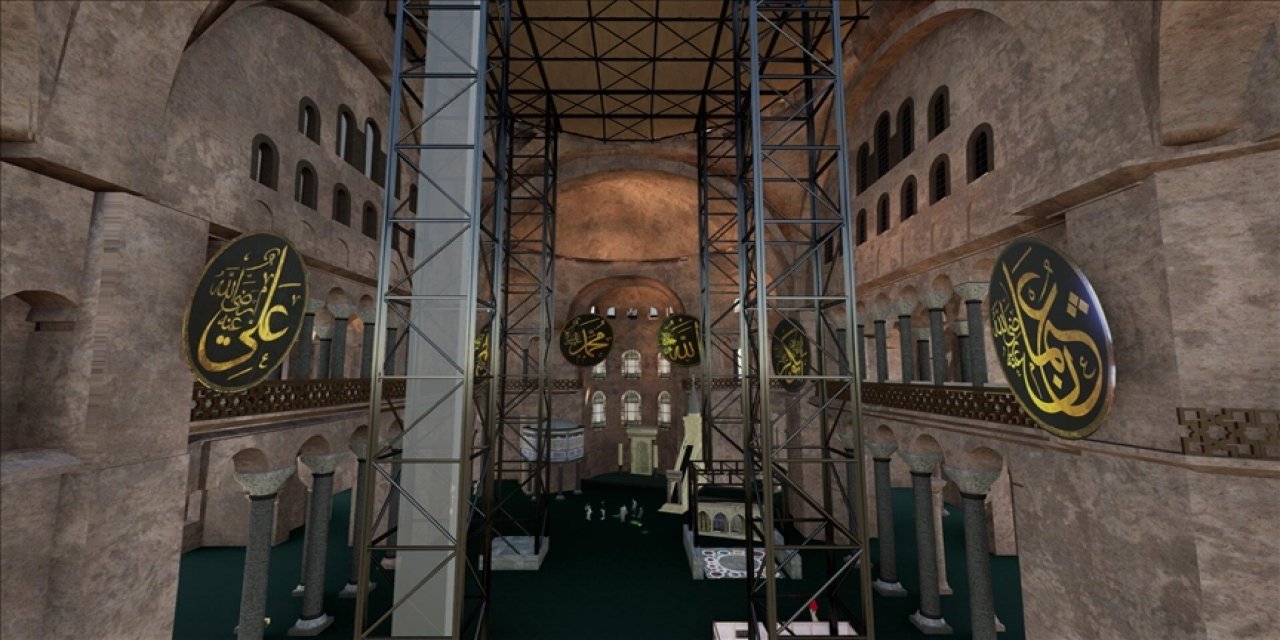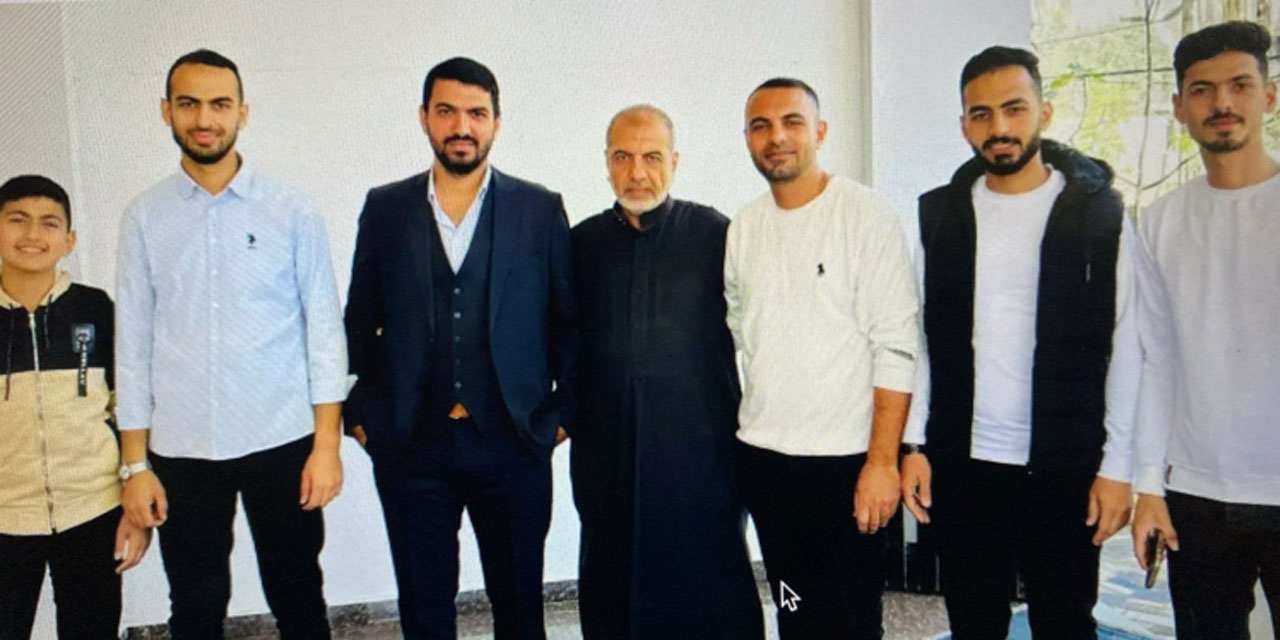
Salahattin ALTUNDAĞ
Kurbân Bayramı: Yüreklerin Derinliklerinde Yankılanan Adanmışlık, Paylaşım ve Allâh'a Yakınlaşma
Ruhun huzurla dolup taştığı, sevginin ve fedakârlığın âdetâ bir senfoni oluşturduğu bir mevsim daha kapımızı çalıyor: Kurbân Bayramı... İki dinî bayramımız var ve her biri hayatımıza ayrı bir renk, ayrı bir tat katar: Ramazân Bayramı ve Kurbân Bayramı. Bu mübârek günler, bizlere âdeta bir lütûf gibidir; içimizdeki îmânı, değerleri ve kültürümüzü bir kez daha haykırma, birlik ve beraberlik duygularımızı kuvvetlendirme, sosyal dayanışmayı ve barış bilincini ilerletme fırsatı sunar.
Dinimizin adımlarını tâkip ederek, Zilhicce ayının 10. gününden başlayarak dört gün süren Kurbân Bayramı'na ulaşırız, bu bayram aynı zamanda hac dönemine denk gelir. Bu dönemde, hacılarımız, ruhlarını mânevî bir arınma sürecine teslim ederek Arafat Dağı'na çıkarlar. Bu arınma, Arefe günü doruk noktasına ulaşır ve hacılarımızın Arafât'ta vakfe yapmaları, günâhlarından arındıkları ve yeniden doğdukları anı temsil eder. Bizler de Kurbân Bayramı'nda âdetâ ruhânî bir yeniden doğuş yaşarız.
Kurbân Bayramı'nda bir hayvanı kurbân etmek, Peygamber İbrâhim'in (as) oğlu Peygamber İsmâil'i (as) Allâh'a kurbân etme niyetine bir saygı duruşudur. Bu eylem, insanın en yüksek değerlerinden biri olan oğlunu Allâh'ın emrine itâat etmek için fedâ etme niyetini simgeler.
İnanç, teslimiyet ve umudun simgesi olan Hz. İbrâhim (as) ve oğlu Hz. İsmâil’in (as) yaşanmış hâdisesi, belki de târihin en büyük imtihânlarından biridir. Bir baba ve oğlunun, Allâh'ın emirlerine olan derin bağlılıklarının ve sonsuz güvenlerinin yaşanmış hâdisesidir bu. Öyle bir hâdise ki, bir evlâdın kurbân edilmesine dâir bir rüyânın, gerçek anlamda Allâh'ın bir emri olduğunu kabûllenmek ve bu emri yerine getirmeye çalışmak...
Hz. İbrâhim (as) ve oğlu İsmâil'in (as) hayatında yaşanmış olan bu büyük imtihân, kalpleri dağlayan bir acı gibi görünse de her ikisinin de Allâh'a olan teslimiyetini ifâde eden ağlatan yaşanmış bir hâdisedir. Hz. İbrâhim (as), oğlunu çok seviyordu; ancak rüyâsında onu kurbân ettiğini gördüğünde, bunun Allâh'ın emri olduğunu biliyordu (Peygamberlerin rüyâları da bir tür vahîydir). Rüyâsında yaşadığı bu zorlu imtihânı oğluna anlatmak zorunda kalmıştı.
Genç İsmâil (as), babasının sözlerini dinlediğinde, bir çocuğun taşıyabileceği en ağır yükü omuzlarına aldı ve teslimiyetle “Ey babacığım, ne emrolunuyorsan yap! Sen, beni inşAllâh sabredenlerden bulacaksın” dedi. Genç yaşındaki İsmâil'in yüzünde derin teslimiyet ve olgunluk vardı.
Baba ve oğul (as), belirlenen yere doğru yol aldılar, her adımda, bu ağır imtihânı hakkıyla verebilmenin endişesiyle kalpleri ağır ağır atıyordu. Hz. İbrâhim (as), oğlunun ellerini ve ayaklarını bağladı, İsmâil ise babasına teslim olmuş, bir kurbân gibi sessizce bekliyordu. Hz. İbrâhim, Allâh’a tam bir teslimiyetle bıçağı çekti ve oğlunun boğazına götürdü, ancak bıçak kesmiyordu. Hz. İsmâil, babasına yüzünü döndürmesini ve yüzünü görmemesini söyledi, belki de babası onun yüzünü gördüğü için bıçağı kesemiyordu.
Oğlunun isteğine uyan Hz. İbrâhim (as), onu yüz üstü çevirdi ve bıçağı bir kez daha denedi, ama yine bıçak kesmiyordu. Bu an, acı ve hüzün dolu bir sessizlikle doluydu. Ancak tam bu anda, Hz. İbrâhim (as) ve İsmâil'in (as) samîmi teslimiyeti Allâh tarafından kabûl edildi. O anda, Allâh onlara şöyle dedi: “Ey İbrâhim! Gerçekten rüyânı doğrulayıp onayladın. Biz iyilik yapanları işte böyle ödüllendiririz. Bu gerçekten çok açık bir imtihândır.”
Hz. İbrâhim ve İsmâil, bu zorlu imtihânı kazanmışlardı. Allâh, onlara katından Cebrâil (as) ile bir kurbân (koç) gönderdi. Bu çetin ve bir o kadar da acıklı olây, Hz. İbrâhim (as) ve Hz. İsmâil'in (as) Allâh'a olan teslimiyetlerini gösteren çok değerli yaşanmış bir hâdisedir. Bu hâdise, her yıl kurbân bayramında anımsanarak, bu büyük teslimiyet ve itâat eylemi yâd edilir.
Hz. İbrâhim'in (as) ve oğlu Hz. İsmâil'in (as) bu târihi hâdisesi, insanların en değerli varlıklarını bile Allâh'ın emrine teslim etme konusunda örnek bir olâydır. Bu olây, Kurbân Bayramı’nda bir hayvanı kurbân etme ritüelini[1] anlamamızda önemli bir role sahiptir. Kurbân, Hz. İbrâhim (as) ve Hz. İsmâil'in (as) bu teslimîyetlerini hatırlatır ve Allâh'a olan kulluk bilincimizin bir göstergesi olur.
Hz. İbrâhim (as) ve Hz. İsmâil'in (as) hâdisesi, insanın Allâh'a olan teslimiyetini ve sadâkatini göstermektedir. Hz. İbrâhim (as), en değerli varlığı olan oğlunu Allâh'ın emrine sunmaya hazırdı. Hz. İsmâil (as) ise babasının Allâh'ın emrine uyduğunu gördüğünde, kendisini Allâh'a Kurbân etme konusunda hazırdı. Bu olâyda, Allâh'ın emirlerine uymak ve itâat etmek, Hz. İbrâhim (as) ve Hz. İsmâil (as) tarafından, insanın Allâh'a olan bağlılığının ve kulluğunun en yüksek ifâdesidir.
Bu hâdiseden çıkan ana mesâj, Allâh'a olan bağlılığın ve itâatin, insanın yaşamındaki en önemli varlıkların üzerinde bile önceliği olduğudur. Bu, Kurbân Bayramı’nda bir hayvanı Kurbân etme ritüelini anlamamızı sağlar. Bu ritüel, Hz. İbrâhim (as) ve Hz. İsmâil'in (as) Allâh'a olan teslimiyetlerini anımsatarak, bizlere Allâh'a olan bağlılığımızı ve itâatimizi yeniden hatırlatır.
“Kurbân etmek, maddî bir varlığı Allâh'ın emri için fedâ etmek, bir hayatı Allâh için vermek anlamına gelir.” Bu, insanın en değerli varlıklarını bile Allâh'a adama konusunda ne kadar kararlı olduğunu gösterir. Bu, maddî varlıkların üzerindeki hükümrânlığımızı terk etmek ve onları Allâh'a sunmak anlamına gelir. Bu şekilde, bir hayvanı Kurbân etmek, Allâh'ın emirlerine itâat etme ve Allâh'a olan bağlılığı simgeler.
Kurbân, aynı zamanda Allâh'a olan derin bağlılığımızın ve kulluk bilincimizin bir göstergesidir. Hz. İbrâhim (as) ve Hz. İsmâil'in (as) hâdisesi bize Allâh'a olan bağlılığın ve itâatin ne kadar önemli olduğunu hatırlatır. Bu, bizim Allâh'ın emirlerine itâat etme, O'na teslim olma ve O'na sadâkat gösterme kapasitemizi simgeler. Kurbân, bu itâati somut bir şekilde ifâde etmenin bir yoludur.
Bir hükümdâr (Allâh'ı temsîl eder) halkının kendisine olan sadâkâtini ve teslimiyetini görmek ister. Bunun için, hükümdâr, bir kişiye (Hz. İbrâhim'i temsîl eder) en değerli şeyini (Hz. İsmâil'i temsîl eder) fedâ etmesini ister. Bu, tam bir sadâkât ve teslimiyet eylemi olacaktır.
Ancak, hükümdârın asıl amacı, bu kişinin en değerli varlığını gerçekten fedâ etmesi değil, onun ne kadar sâdık ve teslimiyet gösterebileceğini test etmektir. Bu nedenle, hükümdâr son anda o kişiye müdâhale eder ve onun en değerli varlığını fedâ etmesini engeller.
Ancak bu olâyın ardından, hükümdâr, kişinin hâlâ kendisine olan bağlılığını ve teslimiyetini göstermesini ister. Bir değerli malını (kurbân edilen hayvânı temsîl eder) halkla paylaşmasını talep eder. Bu, halk arasında yardımseverliği ve eşitliği teşvîk eder, aynı zamânda kişinin hükümdâra olan bağlılığını ve teslimiyetini de teyît eder.
Daha detâylı bir açıklama yapacak olursak:
- Kurbân Etme Bir Saygı Duruşudur: Kurbân Bayramı'nda bir hayvanı kurbân etmek, sâdece bir ritüeldeğil, İslâm geleneğinde yoğun mânevî öneme sâhip bir ânı tekrar canlandırma ve ona saygı duruşunda bulunma eylemidir. Peygamber İbrâhim'in (as) Allâh'ın emrine itâat etmek için en sevdiği varlığı olan oğlunu fedâ etmeye hazır oluşunu hatırlatır.
- Allâh'ın Beklenmeyen Yanıtı: Peygamber İbrâhim'in (as) son derece teslimiyet içeren bu eylemi, ilâhî bir müdâhale ile karşılanır. Allâh, Peygamber İsmâil'in (as) kurbân edilmesine izin vermez; bunun yerine, onun yerine kurbân edilecek bir koç gönderir. Bu, Allâh'ın merhametini ve kullarının inancını ve teslimiyetini kabûl ettiğini gösterir.
- Teslimiyet, Adanmışlık ve Şükrânın Zirvesi: Bu hadise, Allâh'ın irâdesine tam bir teslimiyeti temsil eder ve tam bir teslimiyet, sarsılmaz bir adanmışlık ve derin bir şükrânı içerir. Peygamber İbrâhim'in (as) oğlunu fedâ etmeye hazır oluşu, Allâh'ın hikmetine tam bir güven ve inanç sergiler; bu teslimiyet eylemi, hem insanın ilâhî emirlere olan itâatini hem de ona olan derin saygı ve bağlılığını sergiler. Bu eylem, Peygamber İbrâhim'in (as) Allâh'a olan güven ve inancının simgesi hâline gelir ve bu güven ve inanç, tüm İslâm dünyâsında derin bir etki bırakır.
Adanmışlık ise, Allâh'a olan inancın ve âidiyet duygusunun bir göstergesi olup, sâdece kendisine değil, aynı zamanda topluma ve insanlığa olan sorumluluklarını da ifâde eder. Adanmışlık, insanın değerlerini, ideallerini ve hedeflerini Allâh'ın hikmetine ve emirlerine uygun bir şekilde şekillendirmeyi ve bu değerlerle yaşamayı ifâde eder. Bu hâdise, Allâh'a olan bağlılığın ve adanmışlığın sâdece kişisel bir tercih ya da deneyim olmadığını, aynı zamanda toplumsal bir yükümlülük olduğunu vurgular.
Bu üç kavram; teslimiyet, adanmışlık ve şükrân, Kurbân Bayramı'ndaki kurbân etme ritüeli aracılığıyla bize iletilir. Her biri, İslâm'ın derin öğretilerini ve değerlerini temsil eder. Bu ritüel, Müslümânların bu değerleri hem bireysel hem de toplumsal düzeyde yeniden canlandırmasını ve yaşamasını sağlar.
Kurbân Bayramı'nda bir hayvanın kurbân edilmesi, Peygamber İbrâhim'in (a.s) Allâh'a olan derin bağlılığı, sevgisi ve itâati yeniden hatırlatır. Bu hatırlatma, her bir Müslümânı bu değerler ışığında kendi yaşamlarını ve ilişkilerini gözden geçirmeye ve yeniden şekillendirmeye teşvik eder.
Hz. İbrâhim'in (as) sevgili oğlunu dâhi fedâ etmeye hazır oluşu, inancın ve teslimiyetin âdetâ birer yıldızıdır.
Kurbân Bayramı'nda bir hayvanı kurbân olarak sunarız ve bu, bizi târihe ve önemli bir dinî olâya bağlar. Ancak burada önemle hatırlamamız gereken şey, sunulan hayvanın kendisi değil, bu eylemin sembolize ettiği derin saygı ve itâatin Allâh’a ulaştığıdır (takvâ[2]).
Bu konuda, Kur'ân-ı Kerîm Hac Sûresi'nde belirtildiği gibi: “Onların ne etleri ne de kanları Allâh’a ulaşır; fakat O’na sizin takvânız (Allâh’a karşı gelmekten sakınmanız) ulaşır.” Yani burada asıl olan, Allâh'a olan derin bağlılığımızı, saygımızı ve korkumuzu ifâde etmek ve bu duyguları her dâim canlı tutmaktır. İşte Kurbân keserken, aslında Hz. İbrâhim'in (as) teslimiyetini ve inancını yeniden hatırlarız ve bu durumu kendi yaşamımıza örnek alırız.
Kurbân Bayramı'nda kesilen Kurbânın eti, aile üyeleri, komşular ve ihtiyâç sâhipleri arasında dağıtılır ve böylece bu bayram, yalnızca Allâh'a olan adanmışlığımızı sembolize etmekle kalmaz, aynı zamanda sosyal adaleti ve dayanışmayı da yüceltir. Bu paylaşım ritüeli, toplumumuzda birliği, berâberliği ve dayanışmayı kuvvetlendirir. Bu bakımdan Kurbân Bayramı, sâdece bir bayram değil, aynı zamanda duyguların, değerlerin ve îmânın derinliklerinden süzülüp gelen, mânevî bir hazîne, adanmışlık ve paylaşımın mukaddes bir kutlamasıdır.
Bu mübârek günler, bize Allâh'a olan derin sevgi ve teslimiyetimizi tekrar yansıtma ve paylaşma sevincini birlikte yaşama fırsatını sunar. Bu bayramda da beraberliğimizi güçlendirelim, paylaşmanın bize sunduğu huzur ve mutluluğu birlikte deneyimleyelim.
Kurbân Bayramı'nın mânevî atmosferini incelerken, bu kutlu günlerin barındırdığı derin anlamları görebiliriz. Bu mübârek zaman zarfında, bizler bir yandan Allâh'a olan teslimiyetimizi ifâde ederken, diğer yandan da birliği, beraberliği ve paylaşmayı ön planda tutarız. Ancak bu süreç, yalnızca dışa dönük bir ritüel değil, aynı zamanda içsel bir yolculuktur. Bu yolculuğun en güzel örneklerinden biri belki de Hz. Âdem'in (as) yaşadığı olaydır.
Bu hâdiseyi her okuduğumda derinden etkilenirim: Hz. Âdem'e (as) affedildiği müjdelendikten sonra Allâh’a bir soru yöneltmiştir: “Yâ Rab! Her iş yapana bir ücret ihsân edersin. Âdem kulun Kâbe’yi binâ etti, acaba ona ne ihsân edersin?” Cenâb-ı Hak, “Ya Âdem, seni affettim. Yeter mi?” yanıtını vermiştir. Ancak Hz. Âdem (as), “Ya Rabbi, senin hazînen geniştir, biraz ziyâde et.” demek suretiyle daha fazlasını istemiştir.
Cenâb-ı Hak ise “Yâ Âdem senin evlâtlarından bu evimi (Kâbe) ziyâret edenleri de affettim yeter mi?” diye buyurmuştur. Hz. Âdem (as) ise “Yâ Rabbi, senin rahmetin bol, biraz daha ziyâde et.” diyerek tekrar daha fazlasını talep etmiştir. Bunun üzerine Mevlâ’mız da “Yâ Âdem senin evlâtlarından bu evimi (Kâbe) ziyârete gelenler, gelemeyenlere duâ ederse onları da affettim. Yeter mi?” diye buyurmuştur. Bunun üzerine memnun olan Hz. Âdem (as), “Hasbi, hasbi” (bu bana kâfî Yâ Rabbi) demiştir.
Bu derin diyâlog, Kurbân Bayramı'nın bizlere hatırlattığı değerlerle mükemmel bir şekilde örtüşmektedir. Allâh'a olan derin bağlılık ve teslimiyet, başkalarıyla paylaşma ve birlik içinde olma bilinci... Aynı şekilde, Hz. İbrâhim'in (as) Allâh'a olan teslimiyeti ve Kurbân Bayramı'nda sembolize edilen adanmışlık ve itâat duygusu, Hz. Âdem'in (as) bu hikayesinde de karşımıza çıkmaktadır.
Kurbân Bayramı'nın içerdiği anlamları göz ardı etmemek çok önemli. Bu özel zaman, yalnızca bir ritüel olmanın ötesinde, mânevî bir hazîneyi, adanmışlık ve paylaşımı mukaddes bir şekilde kutladığımız anlamlı bir dönemdir. Mübarek olan bu günler, sâdece Allâh'a olan sevgimizi ve teslimiyetimizi tekrar ifâde etme imkânı değil, aynı zamanda birlikte paylaşılan huzur ve neşeyi deneyimleme fırsatıdır.
Haydi, bu bayramda birlik ve beraberlik duygularımızı yeniden canlandıralım ve paylaşmanın bize sunduğu huzur ve mutluluğu hep birlikte deneyimleyelim.
Herkese huzurlu ve bereketli bir Kurbân Bayramı diliyorum!
***
METNİN İNGİLİZCESİ
EID AL-ADHA: A RESONATION OF DEVOTION, SHARING, AND APPROACHING ALLAH ECHOING IN THE DEPTHS OF HEARTS
A season where the soul overflows with tranquility, where love and sacrifice dance in harmony, is once again knocking at our door: Eid al-Adha. We have two religious festivals, each adding a distinct color, a unique flavor to our lives: Eid al-Fitr and Eid al-Adha. These blessed days serve as gracious gifts to us, offering an opportunity to reaffirm our faith, values, and culture, to fortify our sentiments of unity and togetherness, and to promote social solidarity and peace consciousness.
Following the footsteps of our faith, we reach Eid al-Adha, a four-day celebration beginning on the tenth day of the Islamic month of Dhul Hijjah, coinciding with the Hajj pilgrimage period. During this time, our pilgrims submit their souls to a spiritual purification process, ascending Mount Arafat. This cleansing reaches its zenith on the day of Arafah, and the stand of our pilgrims on Arafat symbolizes the moment of their purification from sins, representing a spiritual rebirth. Similarly, we too experience a kind of spiritual rebirth during Eid al-Adha.
The act of sacrificing an animal during Eid al-Adha is a gesture of respect towards the intention of Prophet Ibrahim (peace be upon him) to sacrifice his son, Prophet Ismail (peace be upon him), to Allah. This act symbolizes the intent to sacrifice one's highest values, in this case, a beloved son, in obedience to Allah's command.
The shared experience of Prophet Ibrahim (peace be upon him) and his son Ismail (peace be upon him), a symbol of faith, surrender, and hope, is arguably one of the most significant trials in history. It is the living testament of a father and son's profound commitment and boundless trust in Allah's commandments. A narrative so powerful that it involves the acceptance of a dream, about sacrificing a child, as a true commandment of Allah and the endeavor to fulfill this command.
This enormous trial faced by Prophet Ibrahim and his son Ismail, although appearing as a heart-wrenching sorrow, is a poignant narrative expressing both of their surrender to Allah. Prophet Ibrahim adored his son; however, upon seeing himself sacrificing his son in a dream, he knew it to be a commandment of Allah (the dreams of prophets also serve as a form of divine revelation). He was obliged to convey this difficult trial he experienced in his dream to his son.
When young Ismail heard his father's words, he shouldered perhaps the heaviest burden a child could bear and said in surrender, "O my father, do what you are commanded. You will find me, Allah willing, to be among the patient." The face of the young Ismail was filled with deep submission and maturity.
Father and son set out towards the appointed place, their hearts beating heavily with each step, burdened by the anxiety of adequately meeting this enormous trial. Prophet Ibrahim tied the hands and feet of his son, and Ismail submitted to his father, waiting quietly like a sacrificial lamb. Prophet Ibrahim, in complete surrender to Allah, drew the knife and brought it to his son's neck, but the knife would not cut. Ismail asked his father to turn away his face, perhaps because his father could not cut due to seeing his son's face.
Heeding his son's request, Prophet Ibrahim turned him face-down and tried the knife again, but still, the blade would not cut. The moment was filled with a painful and sorrowful silence. However, right at that moment, the sincere surrender of Prophet Ibrahim and Ismail was accepted by Allah. At that instant, Allah said to them, "O Ibrahim, you have indeed fulfilled the dream. Thus do We reward those who do good. This was indeed a manifest trial."
Prophet Ibrahim and Ismail had triumphed in this strenuous trial. Allah sent them a sacrificial ram (kurban) through Angel Gabriel (peace be upon him). This challenging and deeply poignant event is a precious historical occurrence that illustrates the submission of Prophet Ibrahim and Ismail to Allah. This event is commemorated every year during Eid al-Adha, serving as a reminder of this profound act of surrender and obedience.
The historical event involving Prophet Ibrahim and his son Ismail provides an exemplar of surrendering even one's most treasured possessions to the command of Allah. This incident plays a crucial role in our understanding of the ritual[3] of sacrificing an animal during Eid al-Adha. The act of sacrifice serves as a reminder of the submission of Prophet Ibrahim and Ismail, and becomes a manifestation of our conscious servitude to Allah.
The event involving Prophet Ibrahim and Ismail illustrates an individual's surrender and loyalty to Allah. Prophet Ibrahim was prepared to offer his most valuable asset, his son, in accordance with Allah's command. Upon seeing his father obeying Allah's command, Ismail was ready to offer himself as a sacrifice to Allah. In this event, obedience and compliance with Allah's commandments, as demonstrated by Prophet Ibrahim and Ismail, constitute the highest expression of an individual's devotion and servitude to Allah.
The primary message derived from this event is the primacy of loyalty and obedience to Allah, even over the most precious aspects of one's life. This understanding informs the ritual of sacrificing an animal during Eid al-Adha. This ritual, by recalling the submission of Prophet Ibrahim and Ismail to Allah, serves to remind us anew of our own commitment and obedience to Allah.
“To offer a sacrifice, or "kurban", signifies the act of relinquishing material possession in obedience to Allah's command and giving a life in His name.” This demonstrates the extent of an individual's resolve to devote even their most valuable assets to Allah. It implies the abandonment of our dominion over material goods and offering them to Allah. In this manner, the act of sacrificing an animal symbolizes obedience to Allah's commands and devotion to Him.
Sacrifice, or "kurban", also serves as an indicator of our profound commitment to Allah and our consciousness of servitude. The narrative of Prophet Ibrahim and Ismail is a poignant reminder of the paramount importance of loyalty and obedience to Allah. It symbolizes our capacity to obey Allah's commands, surrender to Him, and demonstrate fidelity towards Him. The act of sacrifice constitutes a tangible expression of this obedience.
A sovereign (representing Allah) desires to observe the fidelity and submission of his people. To this end, the sovereign asks an individual (symbolizing Prophet Abraham) to sacrifice his most valuable possession (symbolizing Prophet Ishmael). This would constitute an act of complete loyalty and submission.
However, the principal intention of the sovereign is not for the individual to genuinely sacrifice his most cherished being, but rather to test the extent of his fidelity and willingness to submit. Consequently, the sovereign intervenes at the final moment, preventing the individual from sacrificing his most valued possession.
Yet, following this incident, the sovereign still requires the individual to demonstrate his ongoing allegiance and submission. He demands the individual to share one of his valuable possessions (representing the sacrificial animal) with the people. This encourages benevolence and equality within the society, and at the same time confirms the individual's fidelity and submission to the sovereign.
To expound further:
- Sacrifice as an Act of Reverence: Sacrificing an animal on Eid al-Adha is not merely a ritual; it is an act of reviving and paying homage to a moment of profound spiritual significance within Islamic tradition. It evokes the memory of Prophet Ibrahim's readiness to sacrifice his most beloved possession, his son, in obedience to Allah's command.
- Allah's Unexpected Response: Prophet Ibrahim's act of immense surrender is met with divine intervention. Allah does not permit the sacrifice of Prophet Ismail; instead, a ram is sent to be sacrificed in his stead. This demonstrates Allah's mercy and acceptance of His servants' faith and submission.
- The Pinnacle of Surrender, Devotion, and Gratitude: This event represents total submission to Allah's will, which entails unwavering devotion and profound gratitude. Prophet Ibrahim's readiness to sacrifice his son exhibits absolute trust and faith in Allah's wisdom; this act of surrender displays both man's obedience to divine commands and his profound respect and loyalty to Him. This act becomes a symbol of Prophet Ibrahim's trust and faith in Allah and leaves a profound impact throughout the Islamic world.
Devotion is a sign of faith in Allah and a sense of belonging, not only to oneself but also to the responsibilities towards society and humanity. Devotion involves shaping one's values, ideals, and goals in accordance with Allah's wisdom and commands, and living in alignment with these values. This event emphasizes that loyalty and devotion to Allah are not merely personal choices or experiences but also social obligations.
These three concepts - surrender, devotion, and gratitude - are conveyed to us through the ritual of sacrificing on Eid al-Adha. Each represents the profound teachings and values of Islam. This ritual enables Muslims to revive and live these values at both individual and societal levels.
The act of sacrificing an animal on Eid al-Adha is a poignant reminder of Prophet Ibrahim's deep devotion, love, and obedience to Allah. This reminder encourages every Muslim to review and reshape their lives and relationships in the light of these values. The readiness of Prophet Ibrahim to even sacrifice his beloved son exemplifies the shining stars of faith and submission.
On Eid al-Adha, we offer an animal as a sacrifice, which connects us to history and a significant religious event. However, it is important to remember that it is not the animal itself that is of significance, but rather the deep respect and obedience to Allah that this act symbolizes (Taqwa[4]).
On this subject, as stated in the Surah Al-Hajj of the Holy Quran: "Their meat will not reach Allah, nor will their blood, but what reaches Him is your piety." The essence here is to express our deep devotion, reverence, and fear of Allah, and to keep these emotions alive at all times. Thus, when we sacrifice on Eid al-Adha, we are, in fact, recalling Prophet Ibrahim's surrender and faith, and we model our lives on his example.
The meat of the sacrificed animal on Eid al-Adha is distributed among family members, neighbors, and those in need, thereby elevating this celebration to not only symbolize our devotion to Allah but also to promote social justice and solidarity. This ritual of sharing fortifies unity, togetherness, and cooperation within our community. Thus, Eid al-Adha is not just a celebration, but a sacred observance of devotion and sharing, filtering down from the depths of emotions, values, and faith; it is a spiritual treasure.
These blessed days offer us the opportunity to collectively reflect and share our profound love and surrender to Allah. Let us strengthen our unity during this festival and together experience the peace and happiness that sharing brings.
As we scrutinize the spiritual ambiance of Eid al-Adha, we can discern the profound meanings encapsulated within these auspicious days. In this blessed time frame, we simultaneously express our surrender to Allah and prioritize unity, camaraderie, and sharing. Nevertheless, this process is not just an external ritual; it is equally an internal journey. Perhaps one of the most profound instances of such a journey can be found in the experience of Prophet Adam.
Every time I revisit this incident, I am profoundly moved: After being informed of his forgiveness, Prophet Adam posed a question to Allah: "Oh Lord! You grant a wage to every doer. Your servant Adam built the Kaaba; what will you grant him?" The Almighty replied, "Oh Adam, I have forgiven you. Is that sufficient?" However, Prophet Adam, with the declaration, "Oh Lord, your treasure is vast, grant a little more," solicited for more.
The Almighty responded, "Oh Adam, I have forgiven those of your progeny who visit this house (the Kaaba). Is that enough?" Yet again, Prophet Adam, with the plea, "Oh Lord, your mercy is abundant, grant a little more," reiterated his request for more. Following this, our Lord declared, "Oh Adam, if those from your progeny visiting this house (the Kaaba) pray for those unable to visit, I have forgiven them too. Is that enough?" Upon this, a content Prophet Adam responded, "Hasbi, hasbi" (This is sufficient for me, Oh Lord).
This profound dialogue perfectly aligns with the values Eid al-Adha reminds us of—deep devotion and surrender to Allah, the consciousness of unity, and the act of sharing with others. Similarly, the sense of devotion and obedience symbolized on Eid al-Adha and embodied in Prophet Ibrahim's surrender to Allah is also reflected in the story of Prophet Adam.
It is of utmost importance not to overlook the significances imbued in Eid al-Adha. This special time is not merely a ritual but a meaningful period where we reverently celebrate a spiritual treasure of devotion and sharing. These blessed days provide not only an opportunity to reiterate our love and submission to Allah but also a chance to experience the shared peace and joy.
Let us rejuvenate our feelings of unity and camaraderie on this festival and collectively relish in the peace and happiness that sharing brings. I wish everyone a peaceful and blessed Eid al-Adha!
[1] Ritüel: belirli bir amaç için yapılan sembolik ve tekrarlanan davranışlara verilen isimdir. Ritüeller, genellikle dinâ veya kültürel bir bağlamda gerçekleştirilir ve insanların inançlarını, değerlerini veya kimliklerini ifâde etmelerine yardımcı olur. Ritüeller, bireysel veya toplumsal olabilir ve farklı şekil ve anlamlara sâhip olabilir.
[2] Takvâ: Takvâ, İslâm inancında Allâh'ın emir ve yasaklarına uygun bir yaşam sürmek anlamına gelmektedir. Takvâ sâhibi olan kişi, Allâh'ın rızâsını kazanmak için günâhlardan kaçınır ve ibâdetlerini yerine getirir. Takvâ, sâdece dış görünüşte değil, kalp ve niyette de olmalıdır. Takvâ, imanın bir sonucu ve derecesi olarak kabûl edilir. İslâmî literatürde “takvâ” kelimesi, Allâh'ın emir ve yasaklarına uymakta titizlik göstermek, günâhtan kaçınmak ve Allâh'a karşı sorumluluk bilinci taşımak anlamına gelmektedir. Takvâ sâhibi olan kişi, Allâh'ı sevdiği ve O'nun rızâsını kazanmak istediği için O'na itâat eder ve O'nun azabından korunur. Takvâ, Kur'ân'da ve hadîslerde müminlerin en üstün vasfı olarak nitelendirilir. Takvâ, îmânın ve ihsânın bir sonucu ve göstergesidir. Takvâ, insanı hem dünyâda hem de âhirette mutlu eden bir erdemdir.
[3] Ritual: This term refers to symbolic and repetitive behaviors performed with a specific purpose. Rituals are generally conducted within religious or cultural contexts, and assist individuals in expressing their beliefs, values, or identities. They can be personal or social and may take on diverse forms and meanings.
[4] Taqwa: In the Islamic faith, taqwa signifies the act of living in accordance with Allah's commands and prohibitions. A person possessing taqwa refrains from sins and performs their religious obligations with the intention of attaining Allah's pleasure. Taqwa should be manifested not just outwardly, but also in the heart and intent. It is perceived as an outcome and degree of faith. In Islamic literature, the term "taqwa" implies meticulous adherence to Allah's commands and prohibitions, avoidance of sin, and bearing a sense of responsibility towards Allah. A person endowed with taqwa obeys Allah out of love and desire to earn His approval, while safeguarding themselves from His punishment. Taqwa is described in the Qur'an and Hadiths as the most noble attribute of believers. It is a sign and result of faith (iman) and beneficence (ihsan). Taqwa is a virtue that brings happiness in both the worldly life and the hereafter.









Küfür, hakaret, rencide edici cümleler veya imalar, inançlara saldırı içeren, imla kuralları ile yazılmamış,
Türkçe karakter kullanılmayan ve BÜYÜK HARFLERLE yazılmış yorumlar
Adınız kısmına uygun olmayan ve saçma rumuzlar onaylanmamaktadır.
Anlayışınız için teşekkür ederiz.